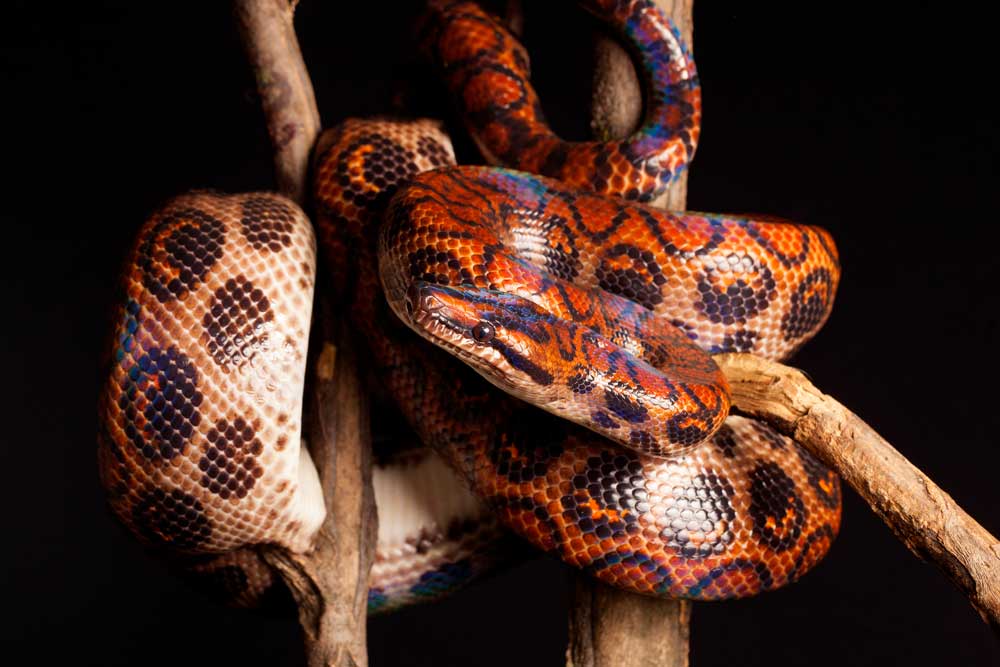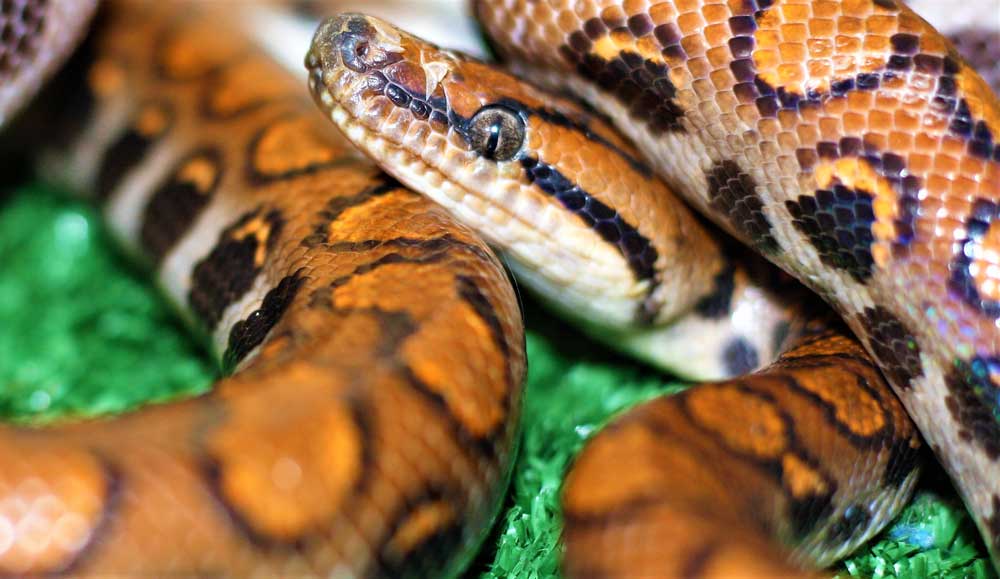The snake, named Ronaldo, and initially thought to be male, has not been in contact with any other snakes for nine years.
A 13-year-old Brazilian rainbow boa (Epicrates cenchria cenchria) has given birth to 14 babies at a university in the United Kingdom via parthenogenesis, in which a female gives birth or lays viable eggs without the aid of male fertilization.
The snake, named Ronaldo, and initially thought to be male, has not been in contact with any other snakes for nine years, according to a news report on the City of Portsmouth College website.
“One of the students discovered them during a routine vivarium check. At first we thought she must have been mistaken. We couldn’t believe our eyes!” City of Portsmouth College Animal Care Technician Amanda McLeod said in the report.
The resident reptile specialist was notified and he too was surprised that the birthing took place.
“I’ve been breeding snakes for 50 years and I’ve never known this happen before,” Pete Quinlan said. “Effectively the babies are clones of their mother although their markings are all slightly different.
Colombian Rainbow Boa Care And Breeding
“Ronaldo had been looking slightly fatter than usual, like he’d eaten a big meal, but we never thought for a moment that he, or should we say she, was pregnant.”

Brazilian rainbow boas are probably the most popular subspecies of rainbow boa. Photo by Perla Sofia/Shutterstock
Quinlan is now working to determine the sex of each of the 14 snakes and setting up vivariums for them until they are rehomed. Ronaldo came to the university as a rescue from the RSPCA.
Reptiles Conceived via Parthenogenesis
A variety of species have conceived via parthenogenesis, including Komodo dragons, Asian water dragons, Anacondas, reticulated pythons, New Caledonian giant geckos, and more. According to the college, this is the third documented case of parthenogenesis is Brazilian rainbow boas.
Brazilian rainbow boas are so named due to the beautiful sheen they exude when light shines upon them. It is the most commonly kept subspecies of rainbow boa in captivity. Males grow to about 5 feet in length while females are larger, capable of reaching 6 to 7 feet in length. Their coloration ranges from orange to a dark red with orange and red saddles traversing their backs. Largely nocturnal, the Brazilian rainbow boa are ambush predators.



